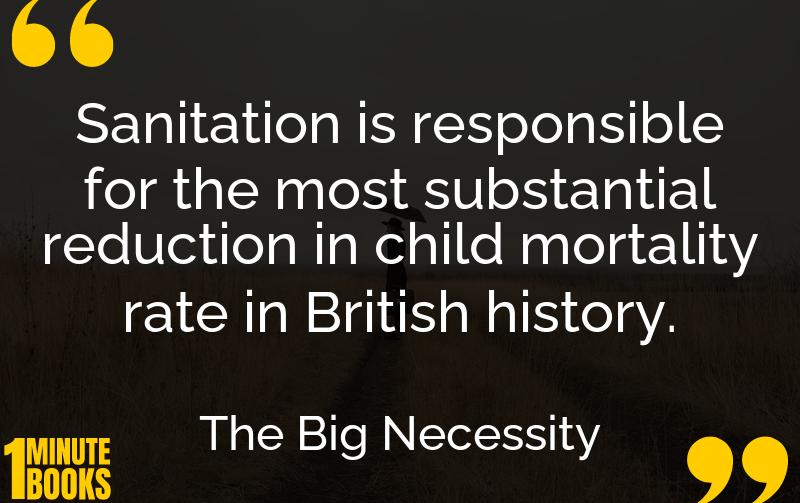
The Big Necessity by Rose George explores the global sanitation crisis, emphasizing the importance of sanitation in health and economy. It highlights the lack of sanitation access for 2.6 billion people and suggests solutions to transform human waste into beneficial resources.
Main Lessons
- Sanitation dramatically reduces child mortality and has significant public health benefits.
- 2.6 billion people live without proper sanitation, leading to diseases and childhood deaths.
- Investing in sanitation can save billions in healthcare and improve economic conditions.
- Sanitation is a major medical advancement, surpassing other innovations like penicillin.
- There’s a taboo around discussing human waste, hindering effective sanitation policies.
- Community-led initiatives like CLTS have successfully tackled open-defecation problems.
- Even wealthy nations, like the US, face challenges with outdated sanitation infrastructure.
- Human waste can transform into energy, fertilizer, and even aid in medical recovery.
- Barriers remain in reusing human waste, requiring innovative and accepted solutions.
- Effective sanitation contributes to healthier populations and wealthier societies.
- National priorities often skew towards defense instead of essential sanitation services.
- An open dialogue is needed to address sanitation issues and inspire innovative solutions.
- Ignorance of sanitation’s importance leads to unnecessary health crises globally.








